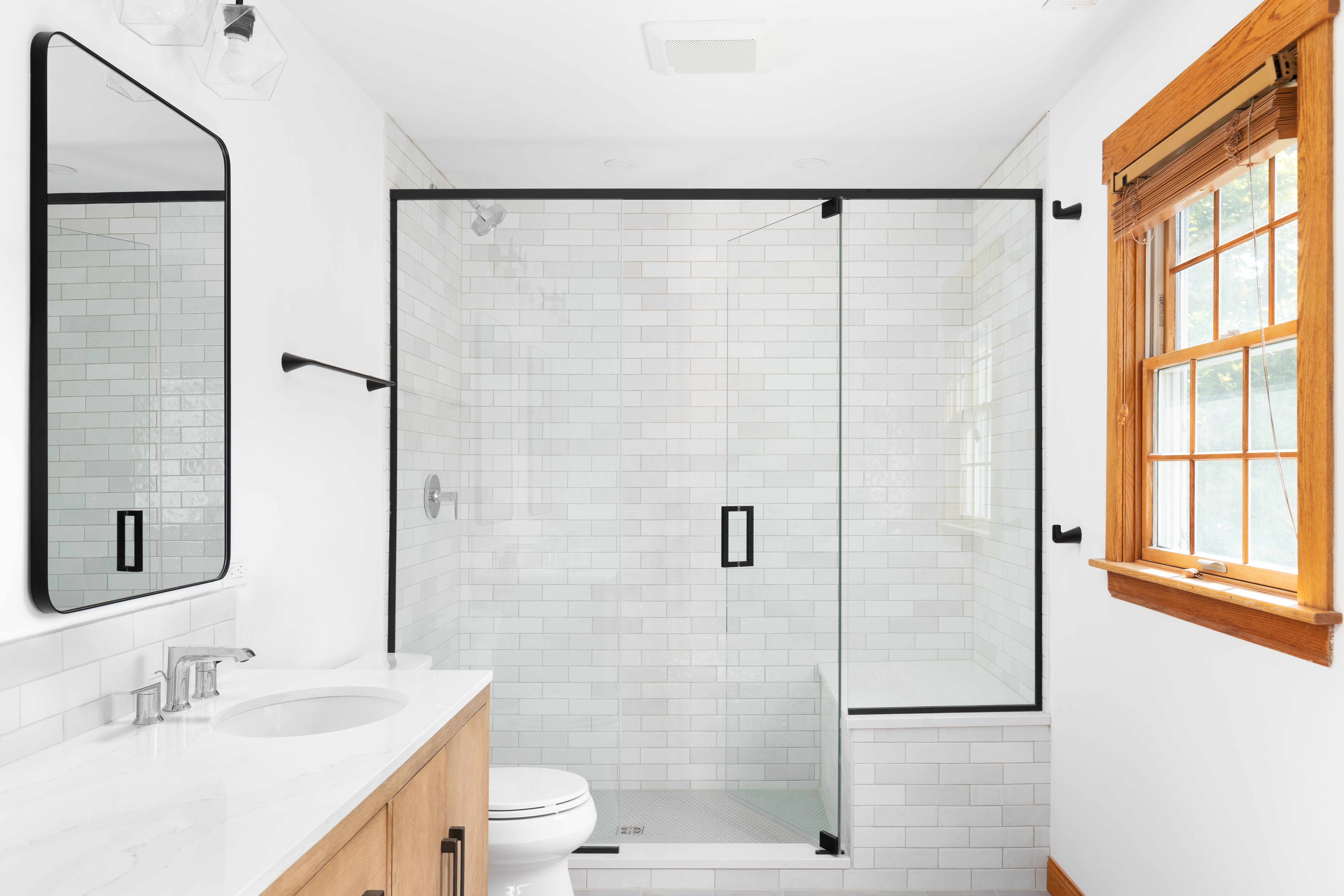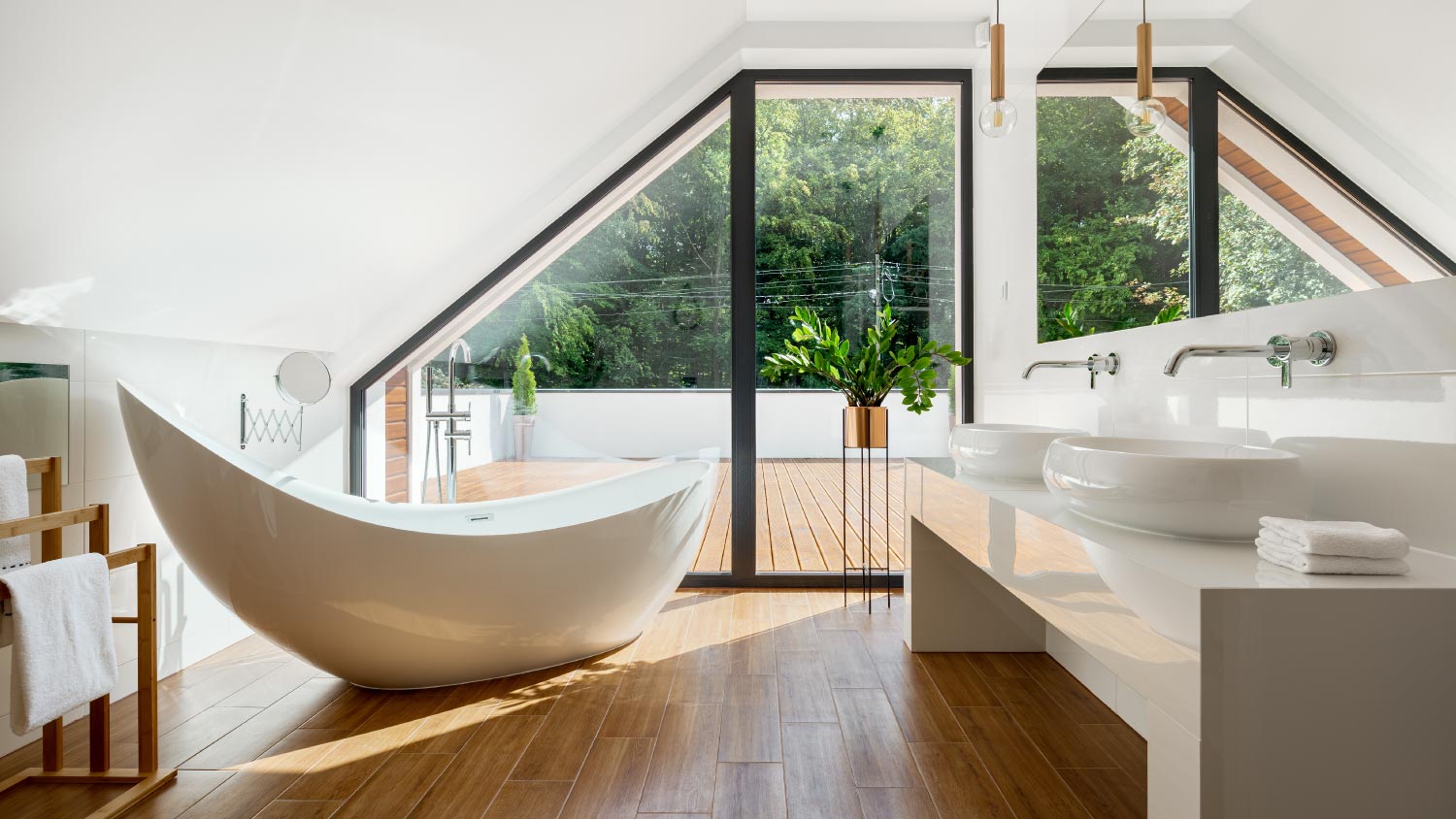
Building a laundry room addition to your home adds value and functionality. Your laundry room addition cost will depend on size, materials, and other factors.
Universal design is for everyone


Whether you’re preparing your home for aging in place, accommodating yourself or a loved one with limited mobility, or simply adhering to universal design principles, hiring an accessible bathroom contractor can get you on the right path toward a bathroom that everyone in your home can use safely. An accessible bathroom contractor should have a Certified Aging in Place Specialist (CAPS) designation and a working knowledge of the Americans with Disabilities Act (ADA) requirements and technological advances that can make the bathroom more user-friendly for everyone. Here’s how to hire an accessible bathroom contractor who can customize your bathroom for your household’s needs.

To find an accessible bathroom contractor near you, you can do a search on Angi and contact the contractors who highlight their experience in accessible bathroom remodeling and construction. You can also contact your local home builders association or search their directory for contractors who specialize in aging in place, as they’ll have the knowledge needed to create a bathroom that accommodates a wide range of needs and abilities.
Before hiring an accessible bathroom contractor, research their background and expertise. It helps to come into the process with a plan for your accessible bathroom so you can get an accurate quote, and checking the contractor’s qualifications and asking the right questions can help start the process off on the right foot.
Accessible bathrooms, or bathrooms that adhere to universal design principles, include elements like grab bars in the shower and near the toilet, a comfort height toilet, a walk-in tub, and a wheelchair-accessible vanity. Knowing which elements are necessary and having an idea of the materials you’ll need will help you get the contractor up to speed and allow them to prepare an accurate quote.
Universal design aims to make bathrooms functional and safe for all in the home. Features include grab bars, a comfort height toilet, slip-resistant flooring, a shower seat, a walk-in tub, a curbless shower, and making the bathroom wheelchair accessible.
The National Association of Home Builders (NAHB) offers a CAPS designation program that allows contractors and others in the home building business to learn how to make recommendations for accessible homes, including bathrooms. Your accessible bathroom contractor should have a CAPS designation and examples of past work. They may also be able to provide references from past projects. Angi and other online reviews can show you how their past jobs have gone and if their clients were happy with their work.

The questions you ask your accessible bathroom contractor may depend on why you’re building an accessible bathroom. For instance, if you’re making modifications for aging in place or someone in your home uses a wheelchair. Contractors with a CAPS designation are also skilled in making recommendations to make a home more “visitable” for family and friends who need accessible bathroom accommodations. Some questions to ask include:
Are you licensed and insured to perform this work?
Are you familiar with bathroom universal design principles?
Do you have a CAPS designation?
Can I see examples of your past accessible bathroom projects?
What assistive technology do you recommend in the bathroom?
How long do you estimate the project will take?
Do I need permits? Who will pull them?
Do I need inspections? Who will schedule them?
How accurate do your quotes tend to be?
What payment method do you accept?
What are the payment terms?
How will we communicate throughout the project, and who should I contact with questions?
Once you’ve found one or more contractors you think are qualified and will do a good job, it’s time to begin the hiring process. Whether you’re installing a new vanity or shower grab bars, interview multiple contractors, review and sign the contract, work out payment terms, and keep your eyes open for any red flags.
Before hiring an accessible bathroom contractor, find three contractors you think are qualified in your area based on their website and online reviews. Contact each one to set up an interview.
Interviewing each contractor will not only give you answers about your project, but they may also offer recommendations, giving you an idea of who will be the best fit. Remember that they'll be in your home and privy to potentially sensitive information about you or your family member’s accessibility needs, so being comfortable with them is vital.
You should only work with a bathroom contractor with insurance. If something goes wrong during the job, the insurance will cover any damage caused by your contractors while working in the bathroom. This gives you the peace of mind for a project as essential as making your bathroom accessible. During your initial conversations, ask for proof of insurance and make sure you know their liability coverage.
Once you’ve settled on a contractor and worked out the project details, it’s time to sign a contract and arrange payment. The contractor may require a deposit, but if it is too large, it could be a red flag.
Keeping records of your bathroom project helps track completed work and when it was done. This can also benefit you if you decide to sell in the future because prospective home buyers will know what accommodations the bathroom includes and if it will fit their needs.
While you don’t want to go into these interactions with high suspicions, be on the lookout for any red flags as you move further into the process. For instance, if the contractor requests a large down payment—more than 10% to 25% of the bathroom remodel cost—they may be out for your money and not your project. This is also a good time to listen to your gut. If you get a bad feeling, you may need more details about their work or to check in on progress to ensure they’re doing the work they said they would.

After the contractor has finished, it’s time to wrap up the project. This includes:
Making the final payment
Leaving an online review
Consenting to having pictures of your project used for their business purposes
Giving permission to act as a reference for potential future clients
Because of the special considerations and attention needed for accessible bathroom projects, if you feel the contractor did a good job or went above and beyond, leaving a review could help other homeowners get the accommodations they need with a reputable contractor.
From average costs to expert advice, get all the answers you need to get your job done.

Building a laundry room addition to your home adds value and functionality. Your laundry room addition cost will depend on size, materials, and other factors.

The cost to add a bathroom takes into account whether it’s a half or full bath, square footage, plumbing, electrical, and more. Read on for a cost breakdown.

Finishing an attic can make a great addition to your home. This guide breaks down the cost to finish an attic, including labor, materials, and more.

This handy guide will walk you through 17 types of bathroom sinks to help you decide on the best one for your bathroom remodel.

If your shower door has been acting up, it’s time to get it back in working order. You can adjust a shower door with some common adjustments.

An updated bathtub can give a bathroom a whole new look. Find out how much it costs to replace a bathtub in Orlando, FL, including prices by type and labor costs.